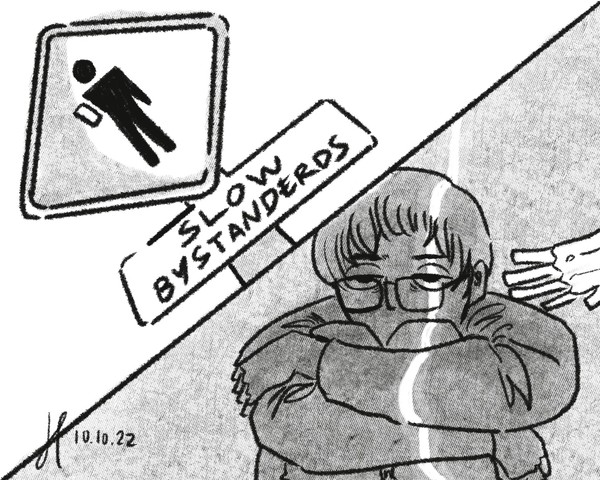It was 2017. I was conscripted to the Korean army and had just transferred to the regiment’s base camp. My batchmate and I, sitting nervously in the seats of administrative office, were waiting for our superiors to assign us duties — a decision that would not only decide what jobs we would work on, but also the kind of people we would be with, and thus what kind of life we would lead in the regiment. When my superior showed up and smirked, “You look smart, what university did you go to?” the prospect of working indoors seemed like a golden ticket, and without even realizing, I answered. Contrary to my expectations, every officer in the room burst out laughing, “Well, that’s too bad. Only if it wasn’t KAIST!” Only later did I discover that a few years back, a graduate student had committed suicide while working in the office.
I still remember those days with a wry vividness: a forest of memories. The joys — sounds of laughter, meaningless banter shared with friends — like a bathe of sunshine; The experiences — the marches through the snow, the serene night duties — rain down to soak the soil. Yet under the lushness lie the shades and beasts piebald with colors of madness and isolation. Cries of help echo through a night of dark trees. Nevertheless, time passes. I got discharged, left camp, and returned to school. But did I really leave?

Just a decade ago, KAIST hit the headlines multiple times for suicide rates. Of course, not as much now, but the Stress Clinic in Pappalardo is always fully booked. We were used to acing tests and storming out of classrooms with a smile on our face. For a lot of us, academic success meant the world to us, a milestone of success in our lives. Ironically because of this, we have lived life in a greenhouse, oblivious to the stresses of failure and lacking in the strength to recover from it. And here we are. Survivor of a gruesome academic system, a proud student of a prestigious university — all well-deserved in the light of our talent and efforts.
But life goes on. We realized our paths have not ended, but just begun. We are constantly exposed to high levels of stress, in a precarious balance for success. When we slip (and most of us certainly do), some of us just don’t know what to do in the face of failure. It might be a failed test, it might be a fight you had with your friend, or it might be the unpredictable, inescapable waves of loneliness. We feel that the standards we set for ourselves over the years are not being met. Our self-image becomes distorted and self-esteem drops steeply. We bottle these feelings up and put them behind a dam, just so we can continue,but sometimes all it takes is a small push for you to swirl into a state of depression.
When we look at the face of failure, we think all is lost. A blow too heavy to recover from. So, we tend to blame ourselves more than we should — it’s the only thing we know to do. And that’s what depression means: a lower tolerance to stress and loss of willpower. You react greatly to small stresses. One day you might lash out and hurt others. On another day you might not even get out of bed at all, weighed down by abysmal thoughts. It’s a constant battle within yourself, between yourselves. But might you stumble, might you fall, you will not be cast away. You can, and you must, always pick yourself back up. Just as KAIST was not the terminus of your life, failure likewise is not the end of you.
Yes, it’s easier said than done. But it’s not impossible. It doesn’t have to be an individual effort. Get help. Go to a hospital. See a friend. Take a break. With time, you will gain the experience and energy to stand up and overcome yourself. And thus spake Zarathustra, “how could you become new if you had not first become ashes?”

